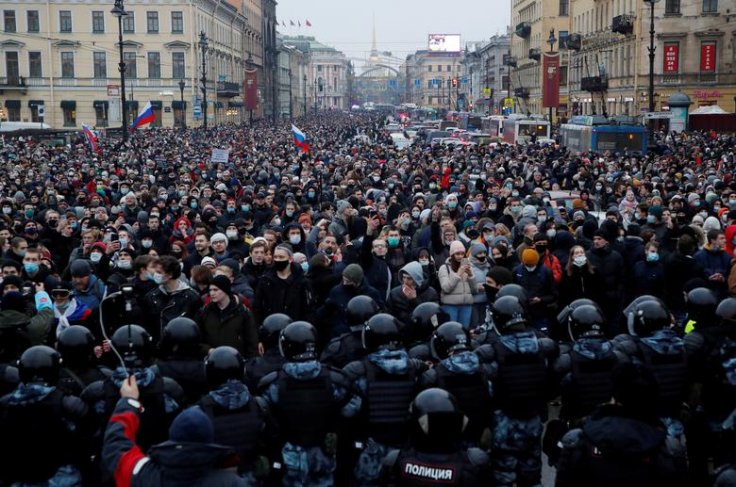Russian protesters are currently using emojis and codes in their messages to discuss and plan any protests against the government over the Ukraine war. The usage of codes and emojis aims to escape the government's surveillance over the digital presence. Currently, Russians fear severe consequences for acting against or criticizing Moscow over the Ukraine war.
Since Russia invaded Ukraine on February 24, a picture started widely circulating on social media.
In the picture, Russian poet Pushkin, the number seven and rows of the "person walking" emoji. To those in the know, the meaning was clear - a location (Pushkin Square, in Moscow), a time and a call to protest against the government's actions, according to BBC.

The emojis referred to a code used for years in Russia to refer to protests - one so well known to the authorities, it is barely a code at all, according to human rights group OVD-Info.
Why Did This Trend Emerge?
Protests in Russia have been banned since 2014 and violation of the rule results in the detention of 15 days while the repeat offenders could also face a jail term of five years.
The rules had forced the activists in the country to figure out any other war for communication.
If an activist plans a protest in Russia, he has just to say let's take a walk rather than using 'protests'.
What started as a way to evade government censors has almost become an inside joke or a meme, Maria told BBC News, adding that Nevertheless, the consequences of not using this language can be serious.

Self Censoring Out of Fear
The closure of the popular social media platforms in Russia has also created difficulties for activists to plan or discuss a protest.
The Russian government's crackdown against the protesters has created panic among people. Some of the critics of the government and even Russian citizens who oppose Kremlin policies are deleting their accounts from popular social media platforms to save themselves from official actions.
OVD-Info coordinator Leonid Drabkin said that the shuttering of independent media outlets, blocking of Facebook and restrictions on Russians posting on TikTok have taken away key routes to access information. "Now if you go to your Instagram, there are like 10 times fewer posts," he said as many of his contacts have deleted their social media profiles altogether.
What Actions Does Russia Take?
When someone in Russia openly makes a social media post about planned anti-govt protests. The person in minutes is traced by the local authorities. Police arrest the person and put him behind the bars for several days over acting against the government.
Alexander attended a protest in Moscow, having posted about it on social media. The following morning, plain-clothes officers picked him up outside his girlfriend's building and took him to the local police department. He was detained for several days and compelled to sign a document listing what the authorities said he had done, according to BBC.
By monitoring the social media activities of individuals, Russian authorities have arrested the people over staging protests against the government.
The strong monitoring of social media posts has forced the activists in the country to communicate with each other by emojis and codes.









